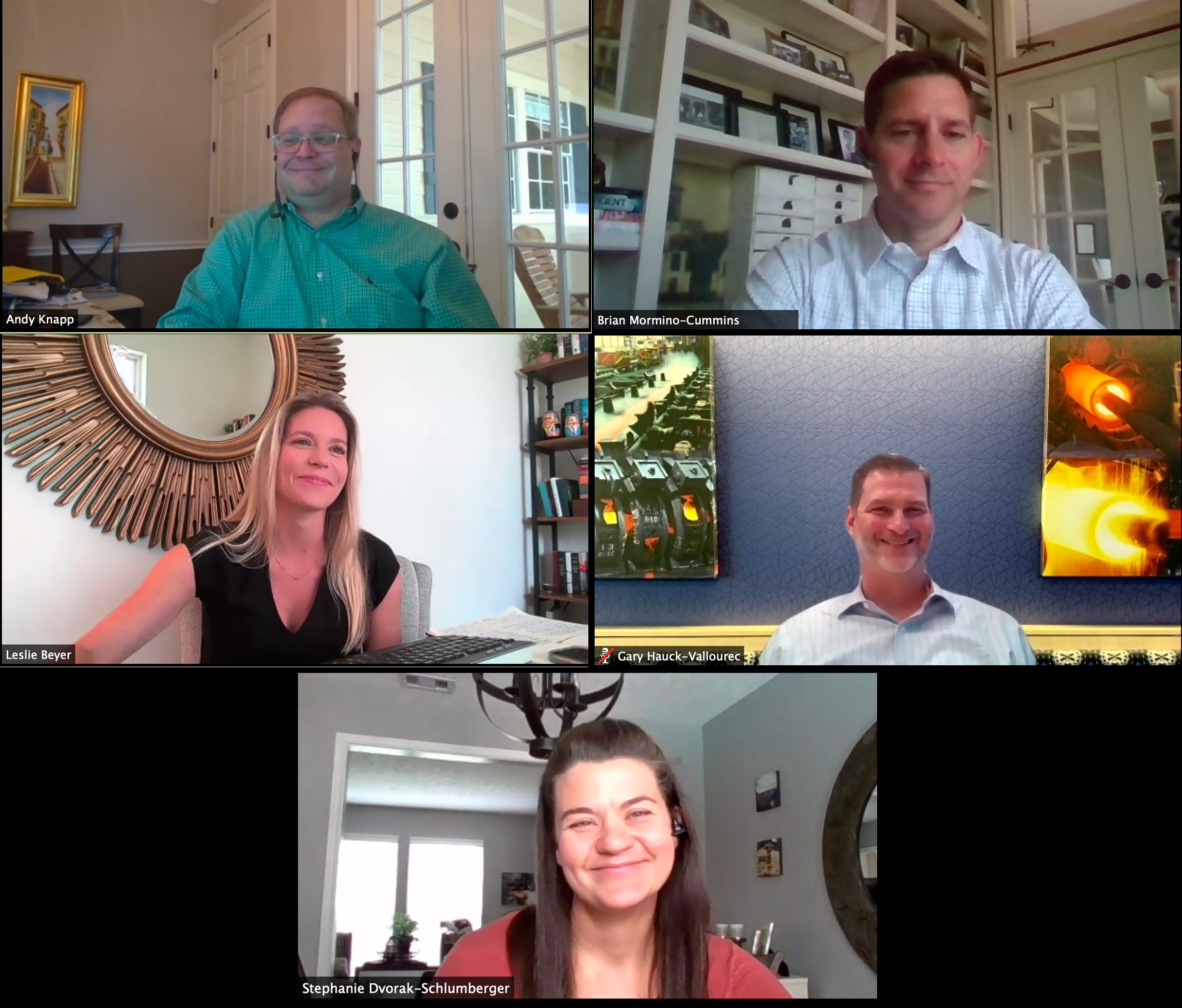 As part of its ongoing effort leading dialogue on the energy transition, the Council’s ESG and Energy Transition Committees held a joint webinar and networking session focused on carbon emissions. Attendees heard from experts at Cummins, Schlumberger and Vallourec on the emission scopes, why measuring is key and the role of energy service providers in addressing emissions for their customers.
As part of its ongoing effort leading dialogue on the energy transition, the Council’s ESG and Energy Transition Committees held a joint webinar and networking session focused on carbon emissions. Attendees heard from experts at Cummins, Schlumberger and Vallourec on the emission scopes, why measuring is key and the role of energy service providers in addressing emissions for their customers.
Gary Hauck, Vallourec, provided an overview of the three scopes, including the history and how attendees can apply the information to their operations. Hauck described how science-based targets (SBTi) help provide industries set targets that align with the Paris Agreement. These targets are based on standard measurements described in scopes I, II and III:
- Scope I: Emissions, including CO2, covered by an entity’s direct processes.
- Scope II: Emissions linked to the energy an entity consumes.
- Scope III: Emissions that an entity’s suppliers are emitting. Any inputs to a process and the equipment used.
Following Hauck’s summary, the Council’s Andy Knapp moderated a discussion with Brian Mormino, Cummins, and Stephanie Dvorak, Schlumberger.
Mormino and Dvorak each provided examples on their companies’ achievements and shared experiences developing targets to reduce emissions. The speakers covered the issue from a domestic and global perspective and addressed the Biden Administration’s emphasis on climate change. They discussed the need for energy service providers to maintain an international social license to operate.
“The social dimension is at the forefront [this year],” said Dvorak. “We bring value with local hiring and promoting human rights. We’ve found environmental metrics we can pair with that so we can show the business case for the most sustainable, locally sourced option.”
Stephanie Dvorak, Schlumberger
Mormino and Dvorak addressed standardization of goals and disclosure, as well as challenges to gathering and reporting data because customers use various reporting frameworks. Customers are increasingly requesting transparency across the value chain, they said, which is directly related to understanding one’s emissions, especially scope III.
Concluding the discussion, Dvorak and Mormino said a company’s ESG performance correlates to the long-term health of the business because it always impacts the bottom line. By reducing energy consumption and getting ahead of government regulation, companies can gain a significant advantage over others by taking actions to be more sustainable.
“When you look at the whole picture, it’s better to take action,” Mormino said. “If you reduce energy use, you save money. And if you take action, you can get ahead of the government, you can be at the forefront with providing solutions to your customers, and pave the way for the sector.”
Brian Mormino, Cummins
Attendees completed the session by breaking into small groups to share lessons learned, compliance challenges and what issues they would like the Council to address in future sessions.
Those interested in joining the Council’s ESG or Energy Transition Committees can contact Senior Advisor on ESG and Sustainability Andy Knapp.




